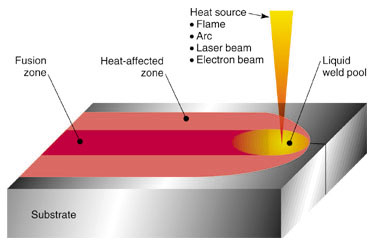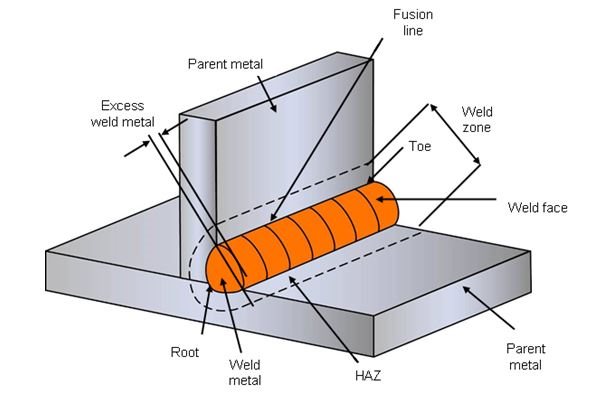Posted on April 18, 2023
Understanding Weld Pool: Definition, Characteristics, and Importance in Welding
Weld pool is a vital element in welding, which refers to the molten metal that is formed when the base metal is melted and fused together with the welding material. It plays a crucial role in the formation and quality of the weld joint, affecting its strength, ductility, and overall performance. This article provides an in-depth explanation of weld pool, including its definition, characteristics, and importance in welding, as well as some examples of how it affects the welding process and the final product.
Introduction:
Welding is a process that involves joining two or more pieces of metal by melting them together and allowing them to cool and solidify. One of the key components of welding is the weld pool, which is the molten metal that is created during the welding process. The weld pool is an essential part of the welding process, as it helps to form a strong and durable joint between the two pieces of metal.

What is Weld Pool?
A Weld pool is the molten metal that is created when the base metal and welding material are heated to their melting point and fused. The weld pool is formed when the heat from the welding process melts the base metal and welding material, creating a pool of liquid metal that solidifies to form the weld joint. The weld pool is typically made up of a mixture of base metal, welding material, and any other additives that are used in the welding process.
Characteristics of Weld Pool
The weld pool has several characteristics that are important to understand for successful welding. One of the most important characteristics is its size, which is determined by the amount of heat that is applied during the welding process. A larger weld pool can be beneficial for welding thicker materials, as it allows for better penetration and fusion of the metal.
Another important characteristic of the weld pool is its shape, which is influenced by several factors, including the welding technique, the welding material, and the properties of the base metal. The shape of the weld pool can have a significant impact on the strength and durability of the weld joint, as it can affect the distribution of stress and strain in the joint.

Importance of Weld Pool in Welding
The weld pool plays a crucial role in the formation and quality of the weld joint. It affects the strength, ductility, and overall performance of the joint, and can also have an impact on the appearance of the weld. Understanding the characteristics of the weld pool and how it is formed is essential for producing high-quality welds that meet the required specifications.
For example, if the weld pool is too small, the resulting weld joint may be weak and susceptible to failure under stress. On the other hand, if the weld pool is too large, it can lead to excessive heat input and distortion of the base metal. By controlling the size and shape of the weld pool, the welder can ensure that the resulting weld joint is strong, durable, and meets the required specifications.
Conclusion: In conclusion, the weld pool is a crucial element in welding that plays a significant role in the formation and quality of the weld joint. Understanding the characteristics of the weld pool and how it is formed is essential for producing high-quality welds that meet the required specifications. By controlling the size and shape of the weld pool, the welder can ensure that the resulting weld joint is strong, durable, and performs as expected.


